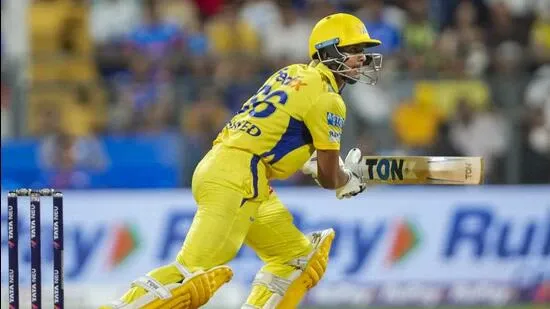
Mumbai: 'If you can't beat 'em, join 'em!' It's an American saying best adopted by New Zealand Cricket in dealing with T20's latest offshoot Major League Cricket (MLC).
Last month, NZC decided to partner with an MLC franchise (starting 2027); a move that signalled to its players that they could be at ease to make the extra buck without the moral quandary of picking club over country.
The month-long franchise offering, starting Friday, designed to leverage from America's lucrative sporting market will see significant participation from Kiwi players. Rachin Ravindra, Glenn Philips, Daryll Mitchell, Devon Conway, Tim Siefert, Lockie Ferguson are among the top New Zealand players slated to play in 'The Land of the Free'.
Given their shallow player pool, the NZ cricket board has been the most willing to embrace the realities of cricket's changing landscape. NZC was the first to give an allowance to its players to sign 'casual contracts'. Effectively, these contracts would allow its sought-after players to fulfill some franchise commitments over bilateral cricket, still making them available for marquee ICC events.
Trent Boult is a good example. The fast bowler was picked to play the 2023 ODI World Cup and the 2024 T20 World Cup without being a contracted player. New Zealand's new list of 20 contracted players is low-key, but "discussions on casual playing contracts for Kane Williamson, Devon Conway, Finn Allen, Tim Seifert and Lockie Ferguson are ongoing," a NZC statement said.
"Cricket is changing very quickly. There is a great demand on players in the franchise space, specifically the marquee icon players. So rather than resist, it is to figure out a way to co-exist together," Rob Walter, New Zealand head coach told the local media.
Without this flexible approach, many Kiwi players may have gravitated towards franchise sport, a reality most cricket nations other than India are having to face.
Once a cricket powerhouse, West Indies has become accustomed to seeing established players abruptly ending their international careers. Nicholas Pooran, arguably the best T20 ball striker in the game today, called time on his international career, this week, aged 29. Kieron Pollard, Andre Russell, Sunil Narine showed the way much earlier by prioritizing T20 leagues, even as international cricket's broken revenue model failed to meet the aspirations of these players.
International cricket has seen other high-profile international retirements from South Africa's Heinrich Klaasen (all formats) to Australia's Glenn Maxwell, Steve Smith, Marcus Stoinis (from ODIs) this year.
Most cricket boards who now find bilateral cricket difficult to monetize - all other than the Big Three - have started their own T20 leagues and not all of them are doing well. Whereas NZC, accepting of the limitations of its unfavourable time-zone to cricket's catchment market (India), instead, chose to buy stakes in an MLC franchise, while sharing their high-performance services.
"This is a first step into potentially investing in other leagues around the globe," said Scott Weenink, NZC CEO. "It gives us an opportunity to continue to be innovative, just as we are on the field, but also off the field by looking for new opportunities to grow our revenue streams and diversify our revenue streams."
It's a win-win for the players too. "This is going to create huge opportunities for our players to play in a domestic franchise league overseas, thereby topping up their earnings that they receive from New Zealand Cricket," he added.
Until world cricket resolves issues around schedules, cuts the flab from the international calendar, decides for itself if Test cricket is for everyone, NZC's approach with casual player contracts and strategic investments in franchise sport offers a temporary fix, if not a lasting solution. And that's something a few other countries should take note of as well.